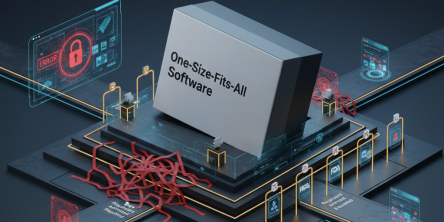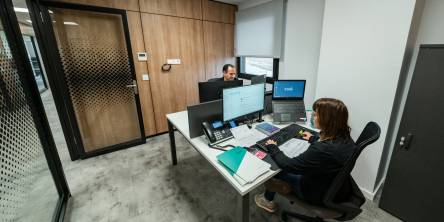How Are Robotics Going to Change the Field of Automated Testing?

Is actually quite staggering to think about simply how much testing needs to be done around the world on a daily basis. It's a natural effect of the overwhelming rate of technological development, delivered of unprecedented scale and complexity -- just consider how superior the average smartphone is relative to a comparable item of simply a decade ago, and how hard you should get things done nowadays without powerful software tools.
It has given climb to the automated tests industry: the ongoing quest of using yet more software to help make the design and setup of testing procedures as easy and efficient as possible. Today, for anyone who is planning a customer-facing program for release, you don't need to manually run through every last factor -- you can use a cloud service to replicate customer actions and swiftly find the data necessary to make final changes.
But a lot of automated testing process built from scratch, with sequences set out. Robotics greatly expand the options. Essentially, they can generate and do overarching macros regardless of the system. How will this cut change the field? Let's look into the broader impact robotics are likely to have:
Disparate items of software typically count on APIs to connect. Essentially, they translate each program's language into a common language that could be easily employed by other programs. This kind of is important for testing because many everyday techniques in the present business world rely on APIs for multiple applications getting used in combination.
But having to fool around with APIs isn't ideal. It requires you to hook up your testing tool to each every program that takes on a role in the procedure you're trying to record -- if it aren't hook up to even one of them, it will leave a gaping gap in the chain that will definitely prevent it from serving the desired role.
A robotic testing create, however, can imitate how a human treats software, using GUIs (not viewing them, as such, however being able to find their way) to execute activities. This means that any program is on the table, no matter the occurrence or quality of the API -- which means it will probably be so much easier to test hyper-complex processes.
They'll introduce NLP-parsed test creation
An substitute title for this point could be "They'll make testing tools intelligent", but that's a contentious state, so I prefer this place. This is likely to be the most significant change overall. Testing techniques currently need to be established with meticulous attention to detail, because programs aren't capable of simulating how humans examine things -- but progress marche on.
Using machine learning, it will (sooner or later) be feasible for a testing program to adopt a set brief and make an appropriate testing process without anyone needing to get manually involved. To get instance, you could concern the command of "Check that the customer subscription form is functioning correctly" to see the utility work following that. There may be some pseudo-creative elements, but for the most part, it will about sketching from a library of preset testing routines and adapting them to suit.
NLP (natural language processing), of course, is important for the very first step: gleaning from the quick (and the context) what the aim of a particular test is, and what specific elements must be examined. There will likely come a period when someone can tell their voice helper to check a certain system, and everything following that will be handled for them -- this is already a common feature in industries from online business (Shopify's ecommerce suite has got the Kit assistant) to fintech (Capital One's banking service has the Eno assistant).
They'll destroy some careers, but create others
Because nice as it is in some ways to envision this industry of hyper-convenience, recharging options worrying for some, because they envision the automation wave as more of a cudgel that will beat many job types into obsolescence. Admittedly, it's totally true that automation testing will make some jobs repetitive (a product quality specialist can't realistically rival the efficiency and reliability of an automated testing service), but it will also create jobs.
Why? Mainly because automated systems can (and do) get it wrong. Updates break things. Code systems get out of date. Structure errors go unseen. Plus the "smarter" we make automatic software, the more funeste its functionality will become. What exactly does it mean when such an software states (using an estimation of human assessment) that something is fine?
To keep this technology in line, the world needs people with skills in the AI field. This needs people who can manually test the automatic testing systems -- looking into them and vouching for the results they produce so that everyone down the line can feel reassured that they didn't exclusively accept the conclusions of an formula.
Similar Articles
It is neither secret nor news that the mind-boggling pace of digital transformation around us has totally altered consumer expectations.
In the world of finance, speed and accuracy are everything. Decisions made a day late can cost millions, and delayed visibility into financial performance can leave even the best organizations blind to risks.
Discover the best tools to enhance employee recognition, boost morale, and create a more motivated, engaged workplace culture.
At first glance, off-the-shelf software appears to be a dream come true. They are quick to set up, cheaper upfront, and marketed as “universal.”
A modern business must continually adapt. This bit everyone seems to know.
The modern healthcare industry is undergoing a significant transformation. The models of healthcare that we are used to thus far are now making way for a more data driven approach
In the modern world, maintaining good health often feels like a constant challenge. Between busy lifestyles, sedentary habits, and lack of motivation, many people find it difficult to stay consistent with exercise, diet, or wellness practices.
Every news publisher's dream, or just getting started, hits that wall sooner or later. What do you build your site on? You’ve basically got two roads: WordPress or custom development.
Discover key features construction teams need in permit tracking software to boost efficiency, stay compliant, and streamline project management.








